‘I’m proud to be part of women’s football history’: Joanie Evans on National Sporting Heritage Day
The Gay Games recently marked its 40th anniversary, just a few months after its co-President Joanie Evans celebrated a milestone birthday of her own. Joanie became an ambassador for Sporting Heritage earlier this year so in support of its annual event – and after a summer in which England finally brought football home – we asked her to reflect on her role in LGBTQ+ sports history…
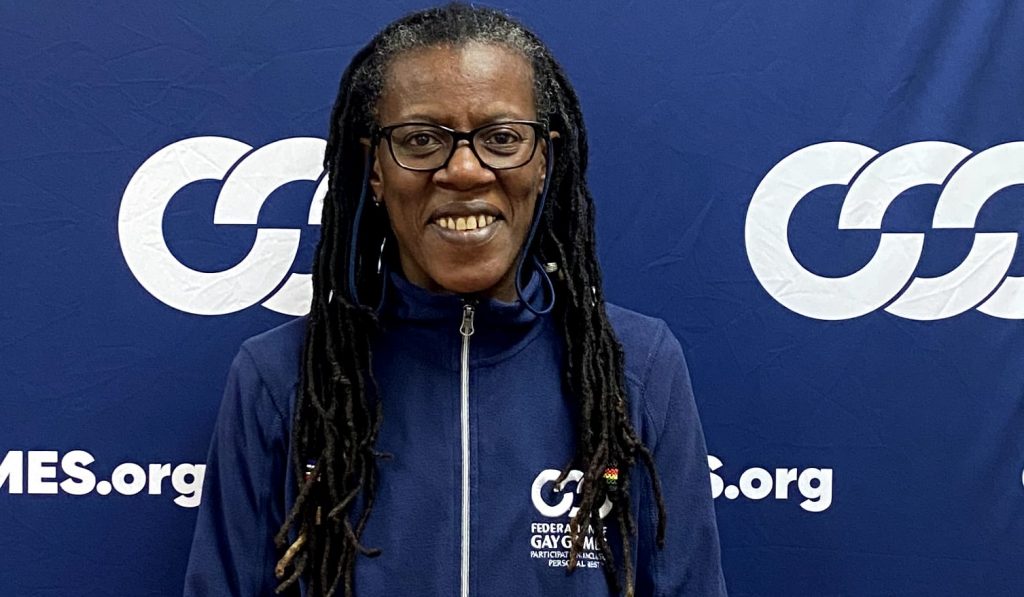
“It’s very important for me to be out as a lesbian… because I enjoy football so much, if I can’t give the whole of myself, I wouldn’t feel comfortable.”
It was highly unusual – taboo even – to be so honest and open back in 1991. Section 28 had come into effect in 1988 and nearly 70% of the UK public still said in the British Social Attitudes Survey that same-sex intimacy was wrong.
So when Joanie Evans, then in her late 20s, spoke candidly in a documentary titled ‘Running Gay’ that aired on national TV, she was running a risk.
Her visibility, and that of her Hackney Women FC team-mates – they were the UK’s first out lesbian team, with Evans a co-founder – contributed significantly towards creating the welcoming game that we all know and love today. She is a pivotal figure in the evolution of inclusion in women’s football.
Joanie is a great friend and supporter of Sports Media LGBT+, speaking at our #AuthenticMe event in 2019. She became co-President of the Federation of Gay Games eight years ago and is currently busy with ongoing preparations for next year’s event, which will be held jointly in Hong Kong and Guadalajara.
Back in May, Joanie also became an ambassador for the community interest company Sporting Heritage – and Friday, September 30, is National Sporting Heritage Day, with a theme for 2022 of ‘Celebrating Diversity in Sport’.
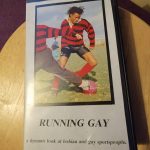
As far as we’re concerned, there’s no one better to chat to about the history of LGBTQ+ representation within women’s football! Joanie has also kindly shared with us a video copy of ‘Running Gay’ which was directed by Maya Chowdhry, and we’re delighted to be able to include the above clip.
Here’s our Q&A with Joanie…
Sports Media LGBT+: It’s 30 years since ‘Running Gay’ was made. How was the documentary received at the time and how do you feel when you watch it back now?
Joanie: At the time, it was quite scary, to put myself and the team out there on such a big platform. The documentary was shown on Channel 4, on ‘Out on Tuesday’ which was an LGBT magazine show.
There weren’t a lot of similar things around on TV and we wondered how people would receive it because being gay in the 90s was far less accepted than it is today.
I remember being approached on Stoke Newington High Street by a black guy who said to me, ‘were you on the telly?’ I nervously replied that I was. But he just gave me a fist bump, so that showed me it was received quite well!
What it did do was increase the membership for Hackney Women from one team that we could just about manage, to three teams. We still run two or three teams to this day.
When I watch it back now, it seems weird! That’s because of the language and where the Gay Games were at that time. Looking at me being so young, it’s very nostalgic – but it’s still relevant today.
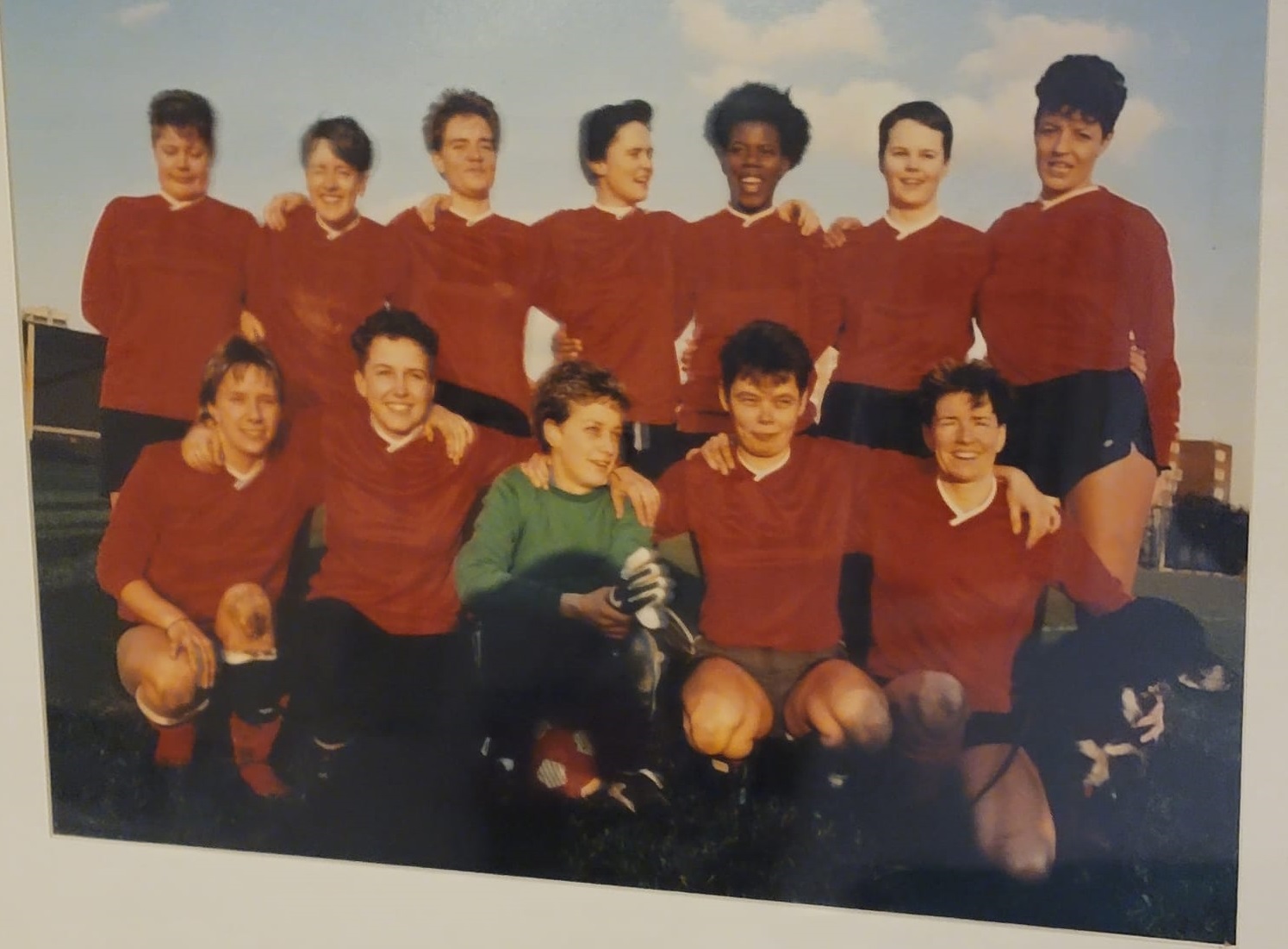
The Gay Games has just marked its 40th anniversary – congrats! When you look back on your involvement, what are the standout moments in your memory?
My first Gay Games in New York in 1994 is still the big one for me. Me and three other Hackney players were part of the Unity Choir so we were involved beyond just the football. That was really good because it allowed us to see a different side of it all.
The other one that sticks with me was in 2002 at the Sydney Gay Games, when I played with a team called Amhurst Aztecs made up of women from Italy, New Zealand and London. We won every single game we played, including the final, and we only had one goal scored against us, if I recall. Winning that gold medal was of course a huge highlight – I would never have dreamed of that when I was younger.
In 2013, we put in a bid for London to host the Gay Games in 2018 and although it was ultimately unsuccessful, it was a big step, showing how the city had made a lot of progress beyond just having LGBT+ clubs and teams playing their sports. We really wanted to bring the Games to the UK and we still do. It just hasn’t happened – yet!
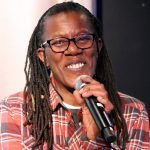
Becoming co-President of the FGG was something that I certainly didn’t see for myself, as a Black woman living in a council flat in London, and only playing recreational football – not being part of a major club.
But because I’d put in years of being involved in the Gay Games, being on committees and in contact with various people, I learned that the board and FGG members did hold me in some high esteem, and that made me see the Gay Games in a different light. It did show me that there was a push for change.
One thing I want to do for the FGG is to make our board reflect the membership that we serve. It’s a very different-looking board now compared to when I first went to a Games in 1994, and even more so than when it all started 40 years ago.
You also featured in content that was shown during Euro 2022. Tell us about that and why it meant so much to you to be involved.
I was contacted by Jean Williams, who is a professor who writes a lot about women’s football and its history, regarding my grassroots with Hackney, being co-President of the FGG, and just who I am really – I didn’t realise who I was until then, or what influence I had!
But I was really proud to be asked, because in terms of the women’s game, to show lesbians in a positive light – something that certainly hasn’t caused any detriment to the game – is something that I was very happy to talk about.
I spoke about what Hackney had achieved, and some of the downsides at that time of being an out team.
With women’s football moving on so much, it’s great to be part of the heritage. Listening to the girls who play for the England team now and hearing them talk about those who went before them, I class myself in that. It makes me feel that I’ve made a difference to what’s happening in the women’s game today.
Amid the celebrations for England, there were also conversations about the low representation of Black players within the Lionesses team. Looking ahead to Black History Month and the future of the game, what concerns do you have on this and how can heritage be used to inspire future generations?
This issue of low representation has been a big thing for me but I always think I’m a small fish in a big pond. I just want to know more about what it is that we can do to make the game more accessible.
What matters to me is that it’s known and it’s spoken about, and I hope those conversations happening today will make a difference and we will see more Black girls playing for England.
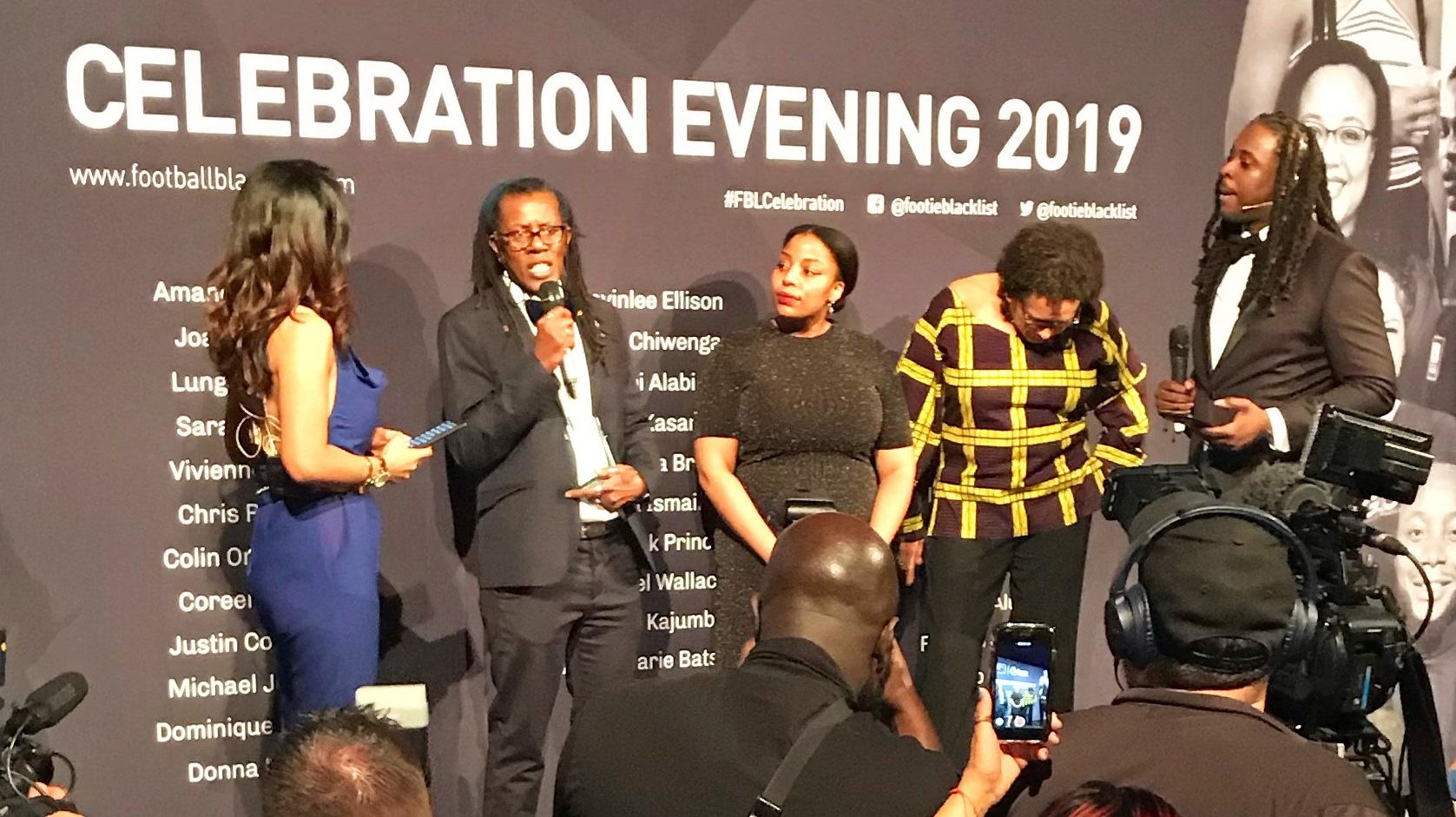
And it’s not just about the England team. I’m concerned about accessibility for all women and girls’ national teams, and the pathways. My family is from Jamaica and while there is a Reggae Girlz team, I think there’s a lot more that needs to go on there in terms of funding.
Some of the bigger governing bodies could do more, I feel. Over here, we’ve now got the best women’s league in the world and that hopefully will make us lead by example. What we do here will reflect across the world.
I hope it continues to be on the agenda so that it gets us to the point where it won’t be something we need to think about as much. The future of the game must include more diversity.
As for how we use heritage, I think it’s helping already. Young women and girls can see all aspects now – they see mothers playing, they see younger and older people playing, and I think it’s really important that we still continue to talk about how we got to where we are today. Let’s not forget where we came from because it defines where we’re going.
I’m continually being asked by Hackney Women about all the historical stuff that went on – maybe I’m one of the only ones left to talk to! But what it means is that anything around the history of the club is kept going, so the newer members know how the team started and what we’ve been through.
It shows the value of the game which gives women and girls so much. Sport provides people with everything they need to combat most things in life.
Our thanks to Joanie. Learn more about Sporting Heritage on their website.
Sports Media LGBT+ is a network, advocacy, and consultancy group that is helping to build a community of LGBTQ+ people and allies in sport. We’re also a digital publisher. Learn more about us here.
We’re interested in your news and stories. Share with us and tap into a worldwide audience through our Google News affiliate website and our popular social channels with over 10,000 followers. Contact us to discuss how we can help you.


